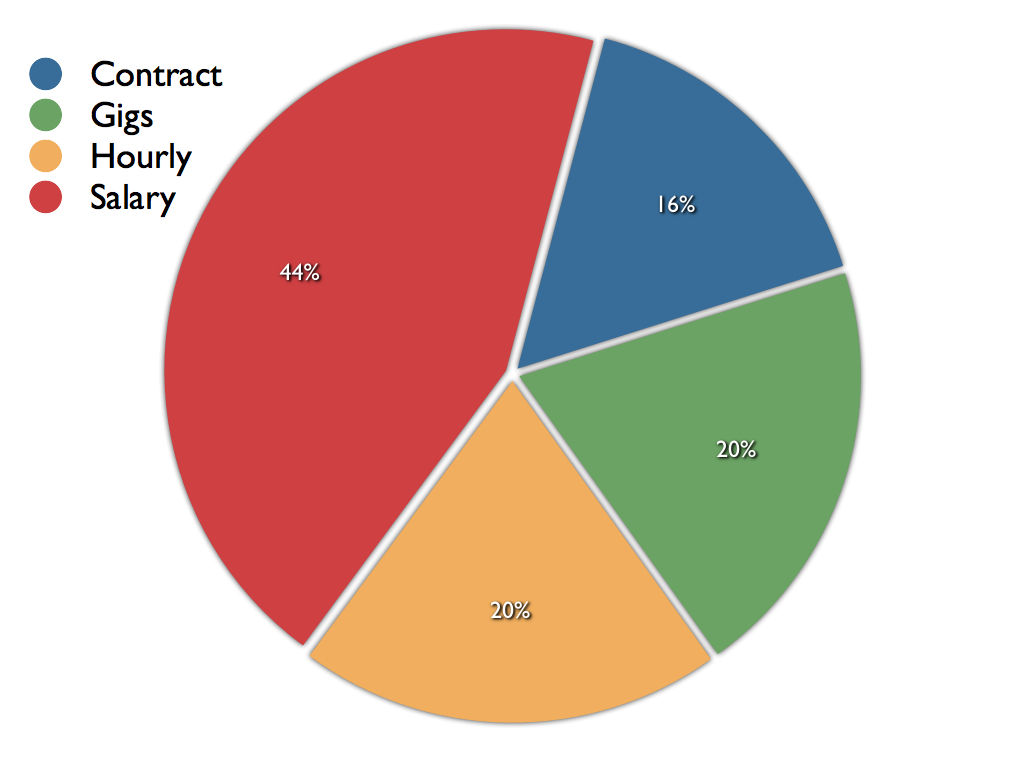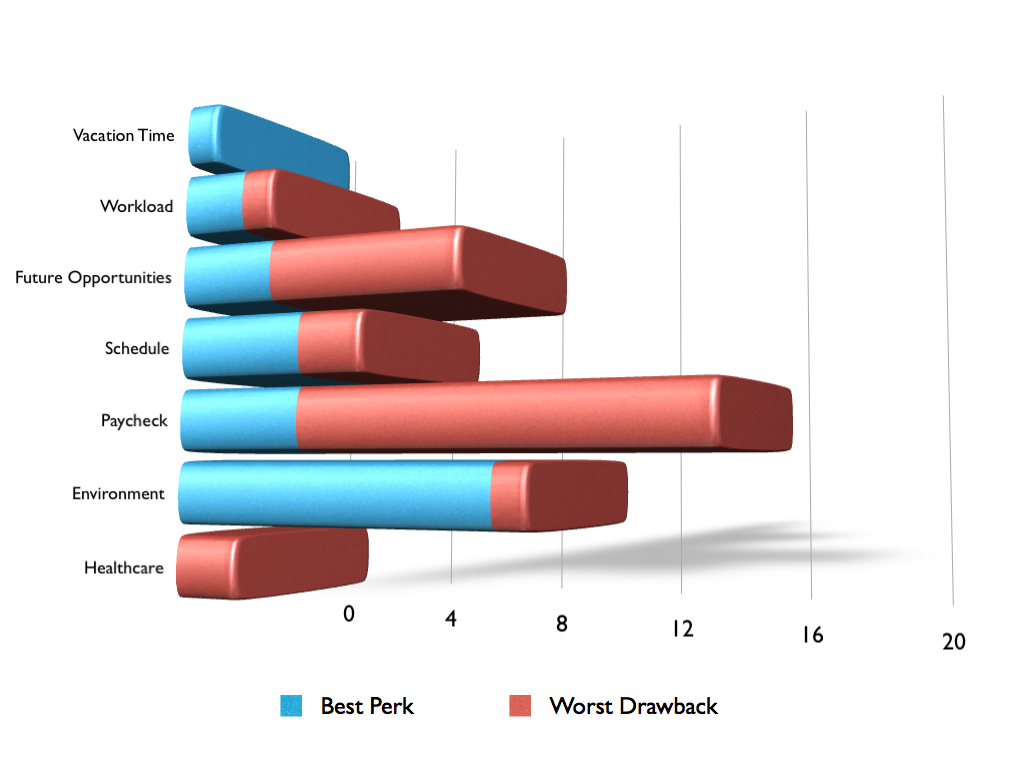Understanding job growth is a tricky business. The Bureau of Labor Statistics publishes dozens of quarterly projections, but few statistics are reviewed by national media. Virtually all of the annual job growth numbers are based on the time-tested non-farm payroll statistics.
Non-farm payroll stats are nice for understanding broad national trends, but what about all of the jobs that exist in the margins? What about the day laborers that work for cash or the creative industry professionals that jump around the country from gig to gig? Solid estimates for people working in these less measurable fields are hard to find.
Preferred Job Payment Structures
In this largely un-scientific survey of working professionals, it quickly became clear that a workaday, salaried position is not the end goal for many people. More than half of the people polled in my survey preferred work that paid on contractual or temporary basis. Many of these people explained that this type of work gives them the freedom to work when they see fit, a luxury in most professions. There were also several commenters that believed the freelancer lifestyle was more conducive to taking jobs that allowed them to extend into new fields, thus making their skill set richer and more employable.
The results break down like so:
Jobs Perks and Detractors
Another important bit of data from this survey compared what people thought were the “best” and “worst” attributes of their chosen profession. They choices were the same for both questions, but the answers were certainly not a mirror image of each other. It is clear in the data displayed below that paycheck stability is a huge factor for people when they aren’t earning enough. This result is to be expected. The surprising element of this data is that an “exciting work environment” was overwhelmingly the best part of many people’s work. Schedule flexibility and future employment opportunities were a close second and third choice. The point of all this, is that there are many potential ways to incentivize labor other than stimulating payroll growth. Stimulating the informal sectors of the economy, like freelance labor, may have major job-creating potential. The obvious hurtle in freelance job growth is medical care, which keeps many people tied to jobs that they would otherwise abandon. But that’s old news… Europe realized that socialized medicine diversified job growth decades ago. Maybe it is about time we do the same.


